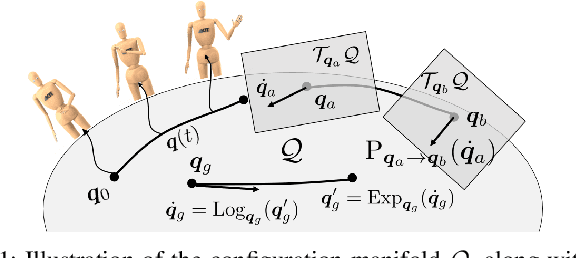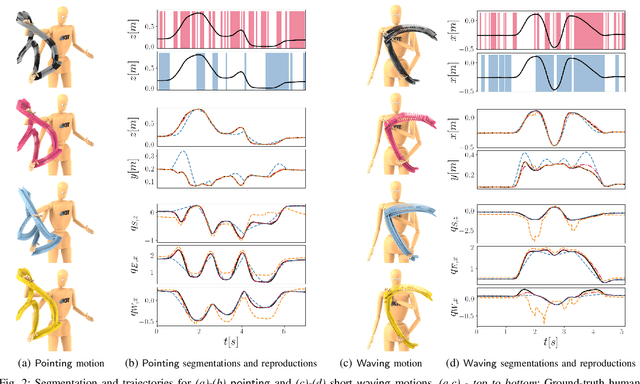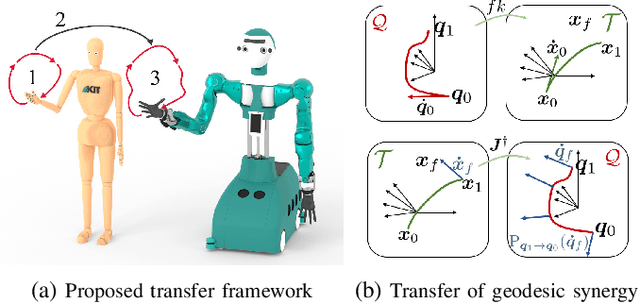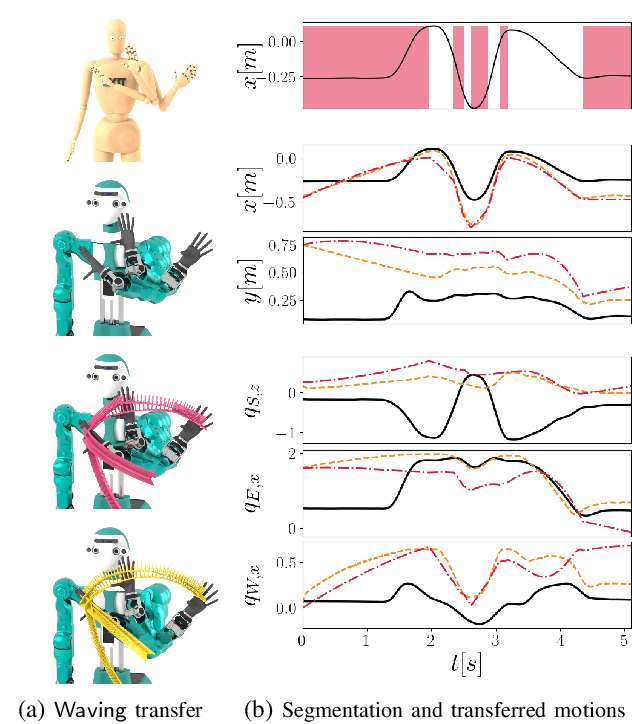A Riemannian Take on Human Motion Analysis and Retargeting
Paper and Code
Aug 02, 2022



Dynamic motions of humans and robots are widely driven by posture-dependent nonlinear interactions between their degrees of freedom. However, these dynamical effects remain mostly overlooked when studying the mechanisms of human movement generation. Inspired by recent works, we hypothesize that human motions are planned as sequences of geodesic synergies, and thus correspond to coordinated joint movements achieved with piecewise minimum energy. The underlying computational model is built on Riemannian geometry to account for the inertial characteristics of the body. Through the analysis of various human arm motions, we find that our model segments motions into geodesic synergies, and successfully predicts observed arm postures, hand trajectories, as well as their respective velocity profiles. Moreover, we show that our analysis can further be exploited to transfer arm motions to robots by reproducing individual human synergies as geodesic paths in the robot configuration space.
 Add to Chrome
Add to Chrome Add to Firefox
Add to Firefox Add to Edge
Add to Edge